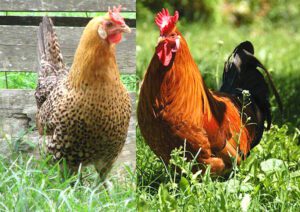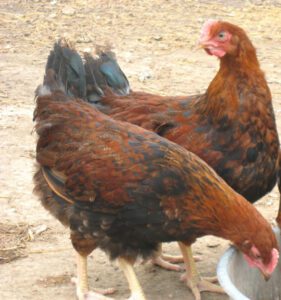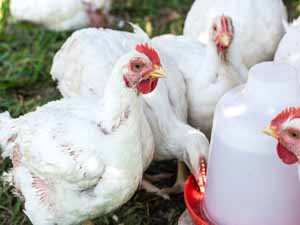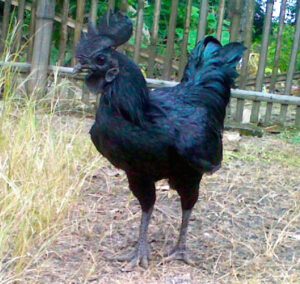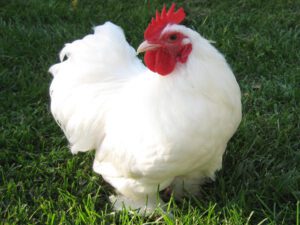Chicken farming, also known as poultry farming, is the practice of raising domesticated chickens for the purpose of meat, eggs, or feathers. It is an age-old practice that has been modernized over time to ensure high yields and profitability. Today, chicken farming has become a major economic activity in many countries, providing a source of employment and income to millions of people worldwide.
One of the unique aspects of chicken farming is that it can be done on a small or large scale, making it accessible to both rural and urban communities. Small-scale chicken farming typically involves raising a small flock of birds in a backyard or on a small plot of land, while large-scale chicken farming involves raising thousands of birds in commercial poultry houses.
Chicken farming has many benefits, including providing a source of protein to meet the growing demand for food worldwide. Chickens are also relatively easy to raise, requiring minimal resources compared to other livestock. They are resilient birds that can adapt to different climatic conditions, making them suitable for farming in different regions.
In addition to meat production, chicken farming also provides a source of income through the sale of eggs and feathers. Eggs are a staple food item in many households, and the demand for organic and free-range eggs has been growing in recent years. Feathers, on the other hand, are used in the production of clothing, bedding, and decorative items.
However, chicken farming is not without its challenges. One of the main challenges faced by chicken farmers is disease outbreaks. Diseases such as avian influenza and Newcastle disease can wipe out entire flocks, causing significant losses to farmers. Proper biosecurity measures, such as vaccination and regular cleaning and disinfection of poultry houses, are crucial in preventing and controlling disease outbreaks.
Another challenge faced by chicken farmers is market volatility. Prices for chicken products can fluctuate depending on supply and demand, weather conditions, and other factors. This can make it difficult for farmers to predict their income and plan for the future.
However, chicken farming is a unique and important agricultural activity that provides food, income, and employment to millions of people worldwide. While it has its challenges, proper management and biosecurity measures can help farmers mitigate these risks and ensure a profitable and sustainable business.
How to Start Chicken Farming Business?
Starting a chicken farm can be a lucrative business, but it requires careful planning and preparation. The first step is to decide on the type of chicken farming you want to do – whether it’s meat, eggs, or both. Then, you need to identify a suitable location, construct a poultry house, and purchase the necessary equipment and birds.
You’ll also need to learn about chicken care and management, including feeding, watering, and disease control. It’s important to have a solid business plan and sufficient funding to get started. With dedication and hard work, you can build a successful chicken farming business.

Complete a Chicken Farming Training
Chicken farming, also known as poultry farming, is an important and rewarding agricultural activity. However, like any other business, it requires knowledge, skills, and experience to succeed. For aspiring chicken farmers, training is essential to acquire the necessary skills and knowledge to run a successful poultry farm. In this article, we will explore the benefits of chicken farming training, the different types of training available, and how to find a good training program.
Make a Chicken Farming Business Plan
Like any other business, it requires careful planning and preparation. A well-written chicken farming business plan is essential for success, as it provides a roadmap for achieving your goals and objectives. In this article, we will explore the key components of a chicken farming business plan, the benefits of having a business plan, and how to write an effective plan.

Determine the Products You Want to Produce
Chicken farming produces a wide range of products. These products include meat, eggs, feathers, and even manure. Determine what do you want to produce from your farm before starting.
Determine the Chicken Farming System
There are several different types of chicken farming systems, each with its unique characteristics, benefits, and challenges. Some most common and popular chicken farming systems are free-range system, intensive system, organic system, backyard chicken farming and battery cage system.
Select Good Breeds
Selecting the right breed of chicken is a very important. The breed of chicken chosen will determine the productivity, adaptability, and profitability of the farm. Some popular chicken breeds are Rhode Island Red, Leghorn, Plymouth Rock, Sussex, Wyandotte, Australorp, Brahma, Silkie, Cornish Cross, Orpington etc.
Ensure Good Housing
Chicken housing is an essential aspect of chicken farming, as it provides a safe and comfortable environment for the birds to live and grow. So, try to provide a good and secure housing system for your birds with the availability of all required facilities.
Ensure Nutritious Feeding
Feeding chickens is an essential aspect of chicken farming, as it directly impacts their growth, productivity, and overall health. Proper nutrition is critical to ensure that the chickens receive the necessary nutrients to live and grow. Starter, grower and finisher are the types of chicken feed depending on their age and growth stage.
Breeding
Chicken breeding is an essential aspect of chicken farming, as it directly impacts the productivity, profitability, and genetic diversity of the farm. Breeding the chickens is relatively easy and simple. Because the chickens are naturally very good breeders. They will breed easily if you keep good ratio of hens and roosters in your farm.
Caring
Caring for chickens is an essential aspect of chicken farming, as it directly impacts the health, productivity, and welfare of the birds. Proper care involves providing a safe and comfortable environment, adequate nutrition and water, regular health checks, and appropriate management practices.
Diseases and Health Problems
Chickens are susceptible to a range of diseases and health problems, which can significantly impact their growth and egg production. Some most common chicken diseases and health problems are Coccidiosis, Marek’s Disease, Avian Influenza, Newcastle Disease, External Parasites etc.
Chicken Vaccination
There are many different types of vaccines available for chickens, and each is designed to protect against a specific disease. Live vaccines contain a weakened form of the virus, while killed vaccines contain inactivated virus particles. Other types of vaccines include recombinant vaccines, which use a genetically engineered virus, and vectored vaccines, which use a virus that has been modified to express antigens from another virus. Common vaccines for chickens include those for Marek’s disease, Newcastle disease, infectious bronchitis, infectious bursal disease, and fowl pox. These vaccines are typically administered via injection, water, or spray.
- Marek’s disease: Vaccination is typically administered at 1 day of age, with a booster given at 4 to 6 weeks of age.
- Newcastle disease: Vaccination is typically administered at 1 day of age, with a booster given at 4 to 6 weeks of age.
- Infectious bronchitis: Vaccination is typically administered at 1 day of age, with a booster given at 3 weeks of age.
- Infectious bursal disease: Vaccination is typically administered at 1 day of age, with a booster given at 3 to 4 weeks of age.
- Fowl pox: Vaccination is typically administered at 4 to 6 weeks of age.
Marketing
This is the most important part of chicken farming business. Marketing chicken products is very easy and simple, because both meat and eggs have very good demand and value in the market. So, you will probably be able to sell your products easily in the market. Target your local market first and then consider any nearest town, hotel or restaurants. We recommend determining your marketing strategies before starting and operating this business.
These are the common steps and ways for starting and operating a successful chicken farming business. Hope this guide has helped you! Good luck and may God bless you!


